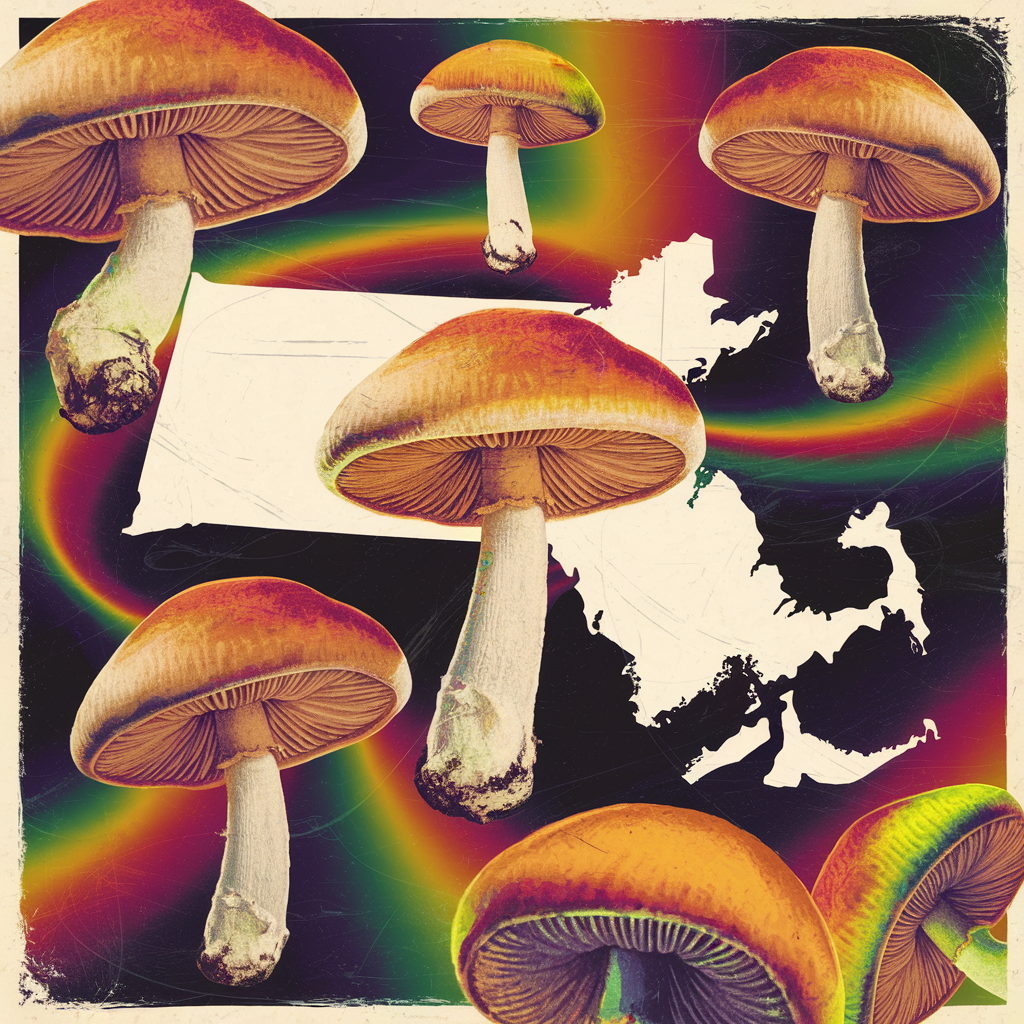Massachusetts voters are split on the legalization of psychedelics, with the outcome of the upcoming ballot initiative potentially shaping the future of mental health treatment and drug policy.
As Massachusetts gears up for its next major election, the state finds itself at a pivotal crossroads on an issue that’s been stirring national debate: psychedelics legalization. A recent poll conducted by UMass Amherst in conjunction with WCVB shows that voters in the state are almost evenly divided on the topic, with 43% in favor, 43% opposed, and 14% still on the fence. This nearly perfect split underscores the complexities surrounding the legalization of psychedelics like psilocybin mushrooms and raises questions about what direction Massachusetts will take.
The Details of Question 4
At the heart of the debate is Question 4, the ballot initiative that would allow adults aged 21 and older to use specific natural psychedelic substances, including psilocybin mushrooms, under the supervision of licensed professionals.
Advocates of the measure point to promising research showing the potential for psychedelics to treat mental health conditions such as depression, anxiety, and PTSD. This body of evidence has grown significantly in recent years, with early trials showing that these substances, when used in controlled settings, can offer profound therapeutic benefits for individuals suffering from treatment-resistant mental health issues.
But not everyone is convinced. Opponents of the initiative warn that the risks of widespread psychedelic use could outweigh the benefits, emphasizing the potential for misuse, lack of thorough long-term studies, and concerns about safety in non-clinical environments. This hesitancy is reflected in the polling data, where a significant portion of voters remain uncertain about how to proceed.
A Growing National Debate
Massachusetts is not the first state to grapple with the issue of psychedelics legalization. In fact, it’s one of many states across the country currently revisiting outdated drug policies in light of new scientific discoveries.
Colorado and Oregon have already moved forward with legalizing psilocybin for therapeutic use, blazing a trail that could potentially influence other states like Massachusetts. The national conversation around psychedelics has shifted dramatically in recent years, with a growing acknowledgment of the potential for these substances to revolutionize mental health care.
At the same time, the debate reflects deeper societal questions about how we approach mental health and substance use. The ongoing opioid crisis and increasing rates of mental health disorders have pushed many policymakers to seek alternative solutions.
For proponents, legalizing psychedelics is seen as a promising avenue for addressing these issues. However, for those against the measure, the concerns about regulation, safety, and the possibility of recreational misuse remain too significant to ignore.
The Fight to Sway Voters
With the November 5th election date quickly approaching, both sides of the psychedelics debate are ramping up their efforts to sway undecided voters. Proponents of Question 4 have centered their messaging around the potential therapeutic benefits of psychedelics, particularly for individuals who have not responded to traditional treatments.
Many are framing the issue as one of medical necessity, pointing to the need for innovative approaches in the face of the mental health crisis.
Opponents, however, are taking a more cautious approach. Their focus is on the potential for negative outcomes if the measure passes, with particular emphasis on the need for strict regulations and the possible consequences of legalization without a more robust understanding of long-term impacts.
Their concerns are not unfounded—while early research on psychedelics is promising, the field is still relatively new, and many feel that more time is needed to fully understand the risks and benefits of legalizing these substances.
The 14% of undecided voters will play a crucial role in determining whether Question 4 passes. This group may be the key to tipping the scales in either direction, and both advocates and opponents of legalization are aware of the significance of swaying this segment of the electorate. In the final weeks leading up to the election, we can expect to see a continued push from both sides, as they seek to clarify the benefits and risks of psychedelics legalization for voters who are still weighing their options.
Looking Ahead
The implications of the Massachusetts vote on Question 4 extend far beyond state lines. Should the measure pass, it could mark a major turning point in how psychedelics are viewed and utilized in the U.S. In states like Oregon and Colorado, where similar measures have passed, psychedelic-assisted therapy has already begun making waves in the mental health community.
If Massachusetts joins the fold, it could provide further momentum for the legalization movement, particularly as more research continues to validate the therapeutic benefits of psychedelics.
Whether Massachusetts voters are ready to embrace this bold step in mental health treatment remains to be seen. One thing, however, is clear: the discussion surrounding psychedelics legalization is far from over. As the nation watches closely, the outcome of the Question 4 vote could provide valuable insight into the future of drug policy reform across the U.S.

***
Trap Culture is the ultimate destination for cannabis enthusiasts who want to experience the best of Arizona’s cannabis culture. Whether you are looking for the hottest cannabis-friendly events, the latest news on debunking negative myths about marijuana, trends in the industry and exclusive, limited-edition products from the top brands in the market, Trap Culture has you covered. Visit our website to learn more about our events, our blog, and our store. Follow us on social media to stay updated on the latest news and promotions. Join the Trap Culture family and experience the most immersive and engaging cannabis-friendly social events in Arizona.


